There’s a unique and rewarding vibe that solo fishing brings… The quiet, the sudden thumps on your line, and the subtle splashes and ripples created by nearby wildlife. It’s a peaceful kind of presence that only nature and the water can offer. You can fish a small freshwater pond or the deep blue sea, and the feeling will present itself every time.
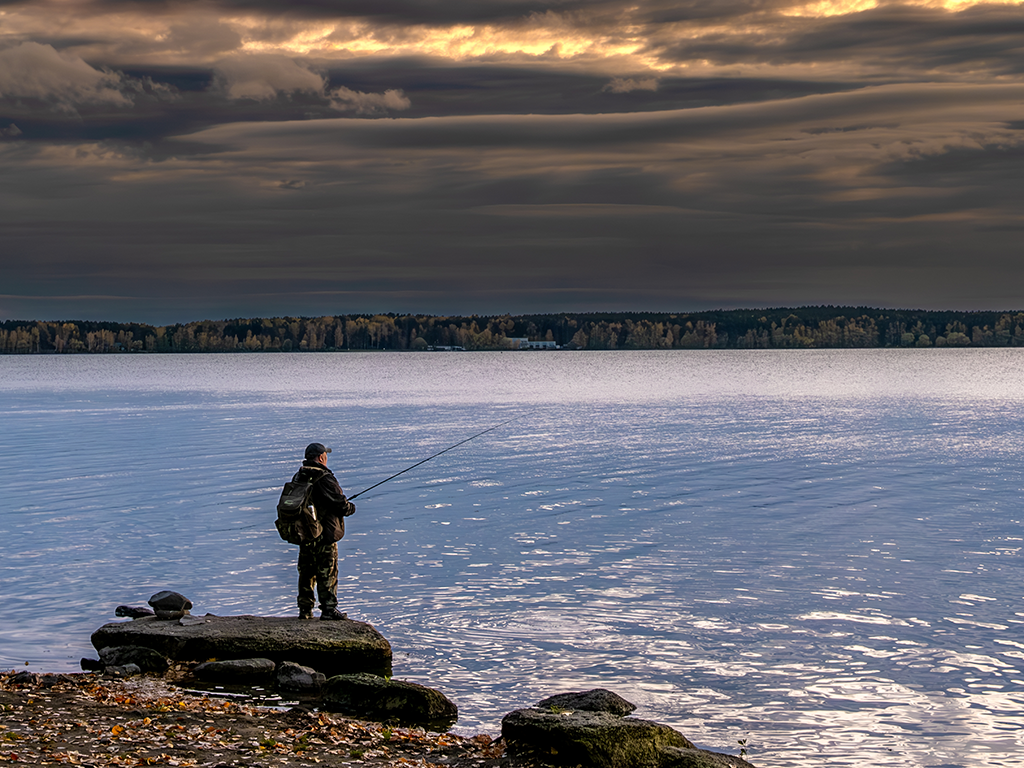
As we glide through this guide and you hear my personal experiences, I hope you can leave with a few pointers and be prepared and excited for your first (or next) solo fishing adventure! Let’s dive in.
Benefits of Solo Fishing
One of my favorite things about fishing solo is that it really gives me a chance to sharpen my skills and test what I know. When you’re fishing alone, you don’t have an extra hand when you run into an obstacle or a big fish strikes your line. That – and you’re minus someone to ask what you should tie on, to help get bait, or to snap a few photos. You’re all on your own!
It provides a big opportunity to practice those individual skills. Solo fishing also means you can make your own plan, hit any spots or use tackle you prefer, and practice any techniques you want. To me, that can provide peace and freedom – on your own terms.
Solo Fishing Concerns: Safety First
One of the main downsides of solo fishing, though, is the increased safety risks. But don’t let that alarm you. If you’re prepared and know what to look out for, you can keep things safe and fun.
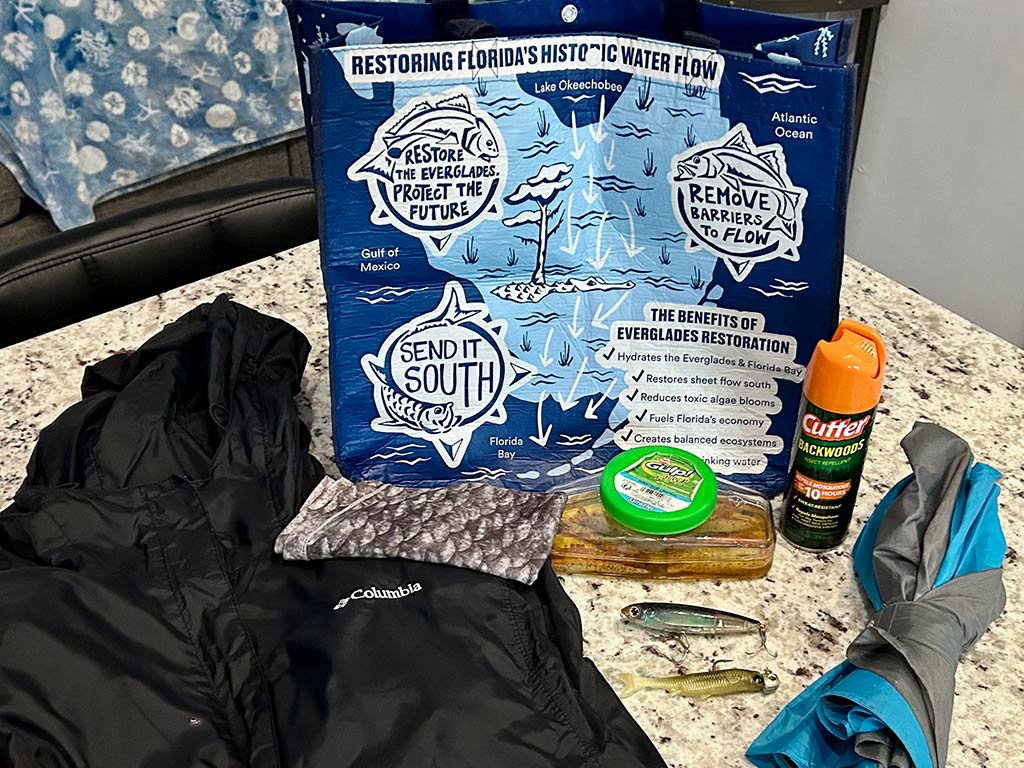
The first step to staying safe during solo fishing is letting someone know your plan. Tell them where you plan to be and for how long. That way, if anything were to happen, someone knows where you are. You can also bring along emergency gear such as a whistle, horn, a GPS, a battery charger, flares, reflective/protective clothing, a radio, and an emergency/first aid kit. If you want to be extra careful, you can arm yourself or give someone your active location as well.
Another big thing to consider when solo fishing is the weather. Make sure, whether you’re fishing from land or a boat, that you’re aware of the conditions. Stay away from dangers like lightning, heavy winds and chops, strong currents, and changing tides or mudslides. Be careful when maneuvering around slippery or sharp structures.
Of course, when fishing, there’s also the chance of running into dangerous wildlife. Depending on where you are, you may run into Sharks, gators, snakes, bears, and much more. Whatever’s present – and dangerous – in your region, make sure your senses are on alert for them!
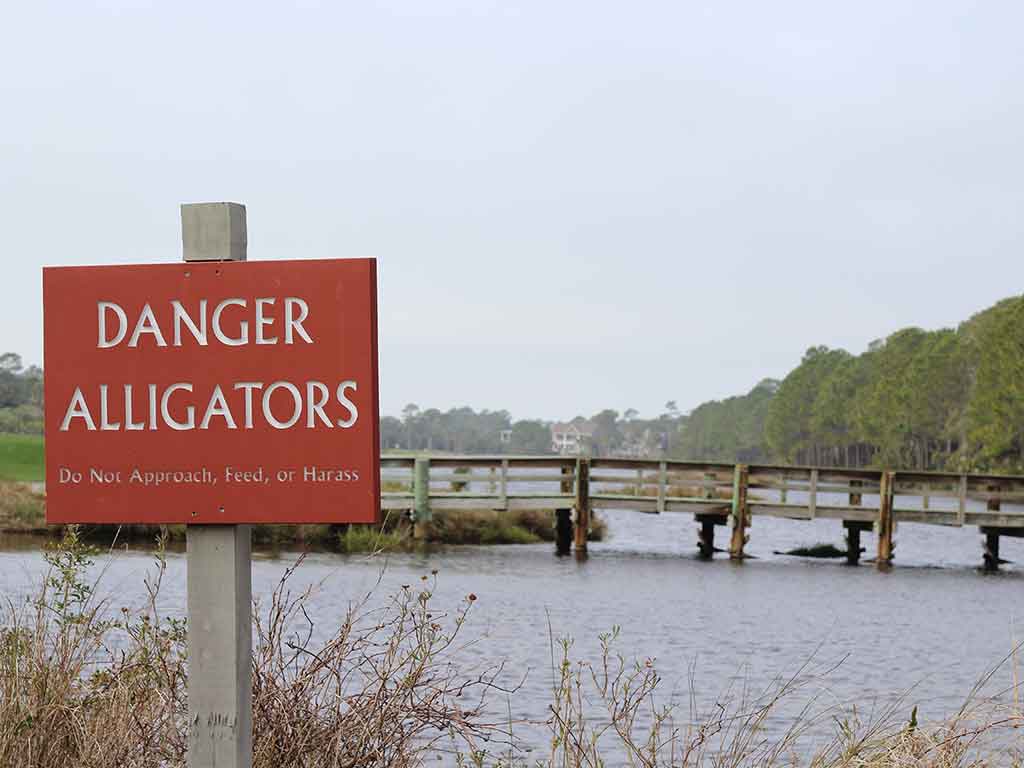
One more thing to add… Watch out for other people – especially if you’re a woman or you’re young. While there are plenty of great people out there who can help you on your journey, some people have other motives. Take it from one of my stories:
I was fishing solo under an empty bridge once when I was approached by two older men. After some small fishing talk, I soon realized one of them was intoxicated and didn’t want to leave me alone. I tried to give him the hint but he ignored me and continued to get closer to me, giving me unneeded compliments and almost cornering me. Luckily, I’d brought my dog along on this trip and he stood in front of me, growling at the guy, which gave us a good chance to head out.
Because of that, I recommend bringing your pup along if they’re well-behaved enough. It’s pretty much solo fishing, but even better in my opinion – you have extra protection!
Freshwater Solo Fishing Tips
Heading out solo to ponds and lakes? Let me share some solo freshwater fishing tips:
From Land

Solo freshwater fishing from land demands good observation skills and a listening ear. You’ll want to walk along the shoreline, casting near any fish beds or structure as you try new spots. You can test out different angles and hard-to-reach areas, but you’re limited a bit when it comes to distance.
Another advantage you have is that you won’t make as much noise compared to on a boat, so you have a lower chance of scaring the fish. Use shorter and lighter setups when fishing from land, focusing on accurate casts with enticing bait like soft plastics or live bait and worms. Bass, Crappie, Pike, Bluegill, and more hang near fishbeds, grassy areas, and underwater structure, awaiting your calm and quiet approaches.
From a Boat

There’s not a major difference when solo fishing from a boat in freshwater, but it is a little more fun. Why? Well, you can reach deeper waters, drop-offs, hidden streams, as well as more fish and structure that may be out in the middle. You can also maneuver around a lot faster and travel to spots from afar, ones you may not be able to on land. With a boat, you have the opportunity to track creatures and structure on a fish finder, allowing more chances at locating and hooking up to fish.
Just keep in mind, fishing solo on a boat can be a bit harder. My fiance, Kyle, used to go freshwater fishing alone a lot when I wasn’t available. He enjoyed the peacefulness but said there were some challenges. First, he had to do all the work alone – from the launching, cast-netting, and bait handling to landing a decent catch while holding his rod as well as handling the trolling motor at the same time. However, it was always worth it, he claims!
Bring along gear like a fish lip gripper, a weigher, a net, and some gloves. These are all essential to keep you safe and help make things easier on your solo fishing journey – whichever route you take.
Saltwater Solo Fishing Tips
If you’re interested in heading out to the sea alone, whether on land or a boat, take some of these tips to help you along the way:
From Land

You can hit up beaches, piers, docks, jetties, flats, mangroves, and many more spots for some awesome solo saltwater fishing. Whether you want to fish from your beach chair, while standing on the rocks, or up to your waist while wade fishing, there are plenty of saltwater species out there to catch.
And land-based fishing provides some great results. I caught my personal best Redfish with a live mullet while land fishing a couple of years ago! I can’t give you any hints on my secret spot, but I can say I was fishing on a dock with surrounding mangroves and casted my bait right along the mangrove line.
The best advice I can share is to select a good setup, whether you want a surf rod for more control and length, or a normal spinning setup for strength and durability. Use live bait such as mullet, pilchards, crabs, sand fleas, and shrimp, or artificial lures like topwaters, jigheads and soft plastics, jigs, flukes, and jerk baits. And stick to areas where the current is flowing or you know the bottom drops off.
Once you hook into something, keep your feet planted, your line tension low, and reel your fish in until you can pull them to shore. Take pliers with you if needed to remove hooks and line from dangerous species like Sharks.
And, as already mentioned, keep yourself safe. It’s only you out there! You may want to bring along some stick-in-the-ground rod holders. That way, you have somewhere to place your rod if you need an extra hand. Just make sure to loosen the drag before you set it down so it doesn’t get pulled into the water if it gets struck on.
From a Boat
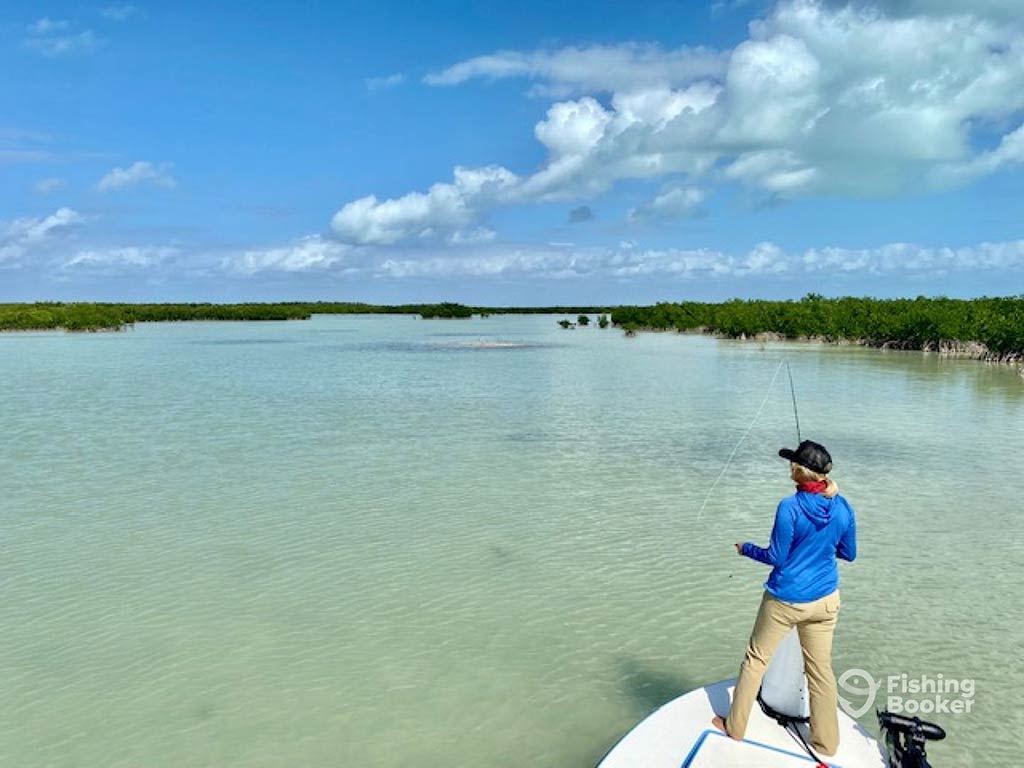
This is probably the most intense of them all. The ocean is no joke, and the conditions can get a little gnarly. If you’re in Florida like me, then you may face sudden and unexpected condition changes. It’s important to make sure you know what you’re doing out there and can face the rough seas if they come about.
Always keep an eye on the weather, tide, and chop reports so you’re aware of the conditions. You should also know where you should be at certain times. For example, make sure to be back inshore before a lightning storm, or don’t go out until later if there’s a risky low tide.
As the ocean is huge, you have endless grounds to cover and new spots to constantly try. Sometimes, you even come across areas you would never reach from shore that no one seems to know about. And at times, these spots can be insane honey holes carrying tons of good fish!
You can use whatever setup you prefer, as you’ll find various techniques and sizes work well in different habitats. You may find using a light setup in a mangrove hole in the backwaters is great, while using a heavy-action setup offshore can help you bring in some pelagic species such as Tuna. As with freshwater, you can use GPS and fish/depth finder tools to increase your chances of locating your next catch.
Again, though… Make sure to stay safe in saltwater, as there are more risks in the ocean. Let people know where you’re heading out, share your location, and make sure you have emergency gear and a way to reach out for help. Remember, when you’re offshore, there’s no service and all you see is open water! It’s best to stick closer inshore, especially if you’re new to solo fishing.
Solo Fishing FAQs
From Line to Legend: Your Solo Fishing Journey Begins
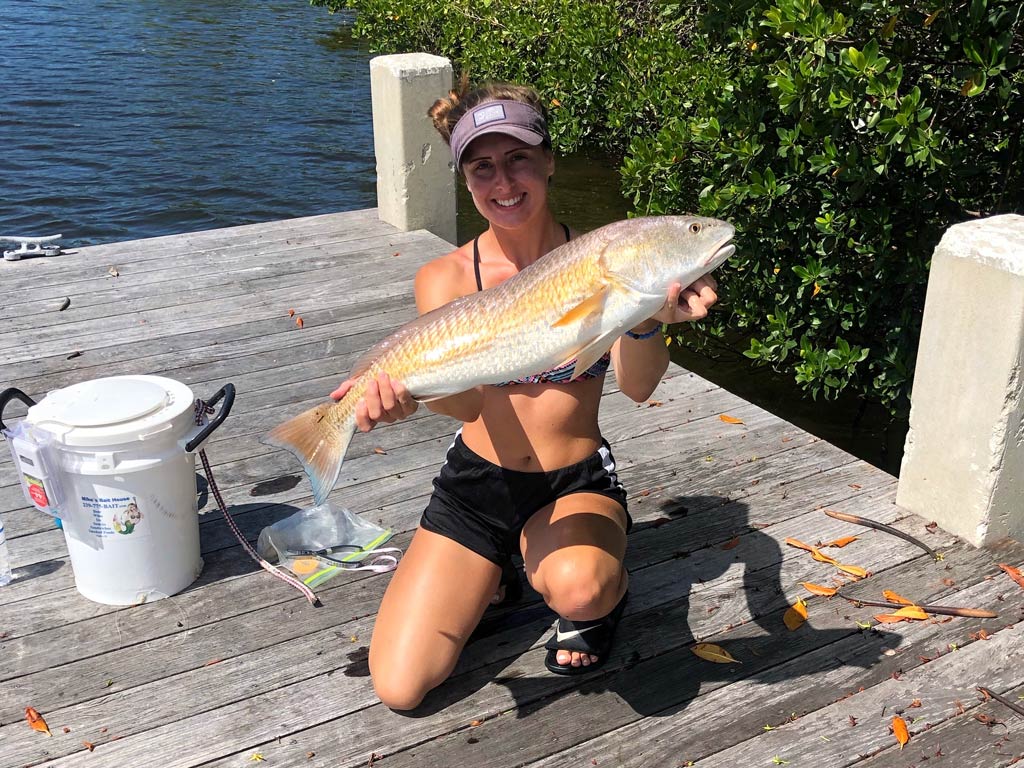
Solo fishing offers an unmatched blend of challenge, adaptability, and peace. Weather conditions, tides, structure, and fish behavior matter the most. And if you’re heading out alone, you want to master it. Stay observant, practice those skills, and, most importantly, enjoy yourself and all the beauty nature has to offer. I’ll leave with you this… Catching a nice fish while solo fishing is a feeling that leaves your cup fulfilled – one you won’t ever forget.
Have you been solo fishing before? What did you catch? What other tips can you share for beginners considering trying it? We’d love to hear from you in the comments below!
